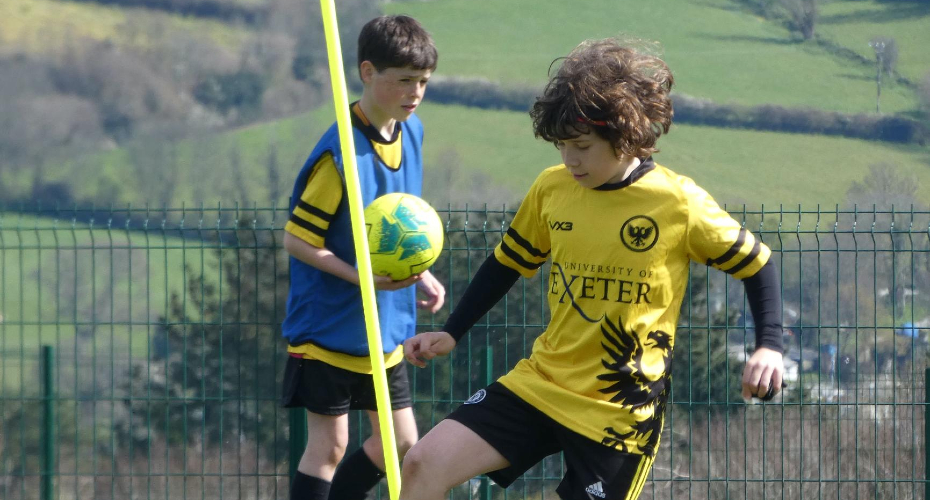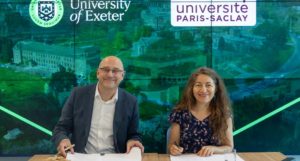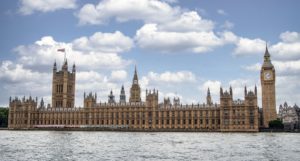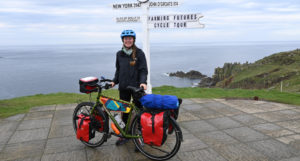Penryn Perspectives: Professor Dave Hodgson
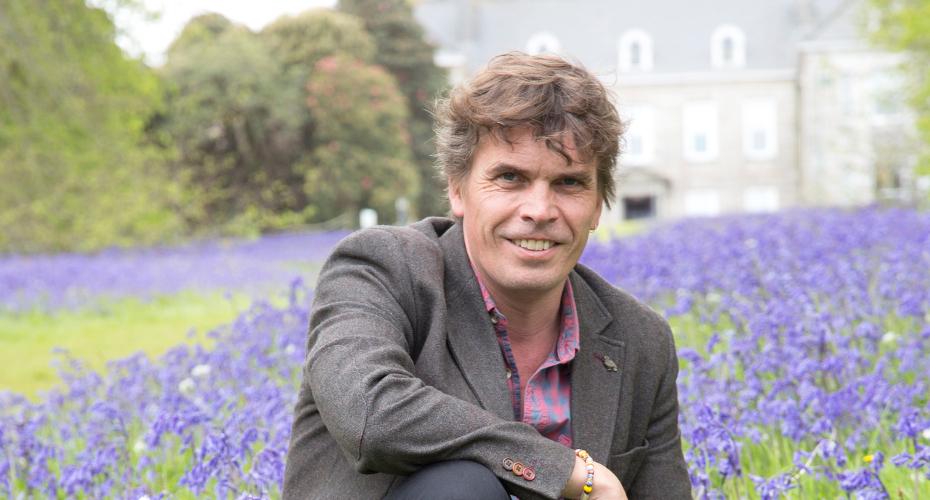
“We’re 20 years young. To have a department of that age ranked 12th in the world for the quality of its ecological research is mind-blowing.”
Professor Dave Hodgson
Dave Hodgson is Professor of Ecology and Head of the Department of Ecology and Conservation. Joining the University in 2002, Dave has, in the space of two decades, helped to establish the department as one of the most respected in the world, and grown staff and student numbers, and research funding, by several orders of magnitude. A quantitative ecologist, Dave has strong research interests in life history evolution, demography, conservation, and wildlife disease, with a particular interest in how populations respond to disturbances.
In this, our ninth Penryn Perspective, Dave reflects upon the nature of growth…and the growth of nature in the University’s academic portfolio.
“There’s a picture hanging on the wall in my mum’s house in New Zealand of an engine house, perched on the edge of a cliff. It’s just a little piece of artwork, a memento of a time when we used to come to Cornwall on family holidays. At least, she assures me we did, because all I can remember is a caravan shaking in the gale force wind, and the rain pouring in through the broken window.
“When I joined the University, grasping the opportunity to come from a research institute in Oxfordshire, Cornwall was the proverbial glimmer in its eye. The intention was to develop degree programmes in conservation biology and ecology, and my recruitment on a two-year fixed term contract was to lead the training of undergraduates in those subjects so that they would transition down to the campus in their third year. At that stage, there was no guarantee that I would end up in Cornwall, nor indeed how things would pan out. That was until I won one of the lectureships, which meant that I was there in Penryn when the ribbon was cut.
“From the very outset, Penryn suited me perfectly. When you have a small team of dynamic people, working at a new frontier, you get that sense of opportunity and challenge – and maybe a bit of risk-taking. That added an extra spice to it, but we I think we did a good job of assembling the right team of people who could get on with one another and get on with the job – and that was a good thing as, with just 12 students in the first year, we had a hell of task ahead of us.
“Pretty rapidly, we realised that we needed to create our own ‘local product’. And I think that has been part of the success story – we specialised in conservation and ecology; we set up a zoology degree; then later an animal behaviour degree, an evolutionary biology degree and then most recently a marine biology degree. What they have in common is that they are ‘of us’, they are of Penryn.
“And we’ve tapped into a subject that is in some respects a hard choice. We specialise in whole organism biology, conservation, animal behaviour, marine biology – things that teenagers have as hobbies. And they’re the kind of teenagers – or mature students – that want to help save the world. Our focus is on the global biodiversity crisis; we know that we can’t survive without nature. So, we teach and do research on how to conserve nature for future generations, and it’s for us to set up our graduates with the skills they need to take that message into whatever sector they end up in. They could be teachers, they could be researchers, they could be financiers, sustainability officers, environmental consultants… as long as they take that mission of conserving biodiversity with them, then, we know, we’ve kind of done our job.
“And our graduates don’t like leaving Cornwall! They’re out there providing the expertise that generates jobs for local people. They are growing the knowledge economy, which in turn is boosting the Cornish economy in immeasurable ways. So too are our staff, who have become a touchstone of the ecological sector in Cornwall. When we started, we had six in the team; now we have 70. And they’re out there working on translocation projects for beavers and water voles; surveying for seagrass and maerl beds; supporting the sustainability of fisheries or living landscape projects in West Penwith; working on seagull problems in town centres; sitting on advisory boards and appearing on television to talk about biodiversity. It’s a melting pot of expertise and skills.”
“I like wild places. But the thing is, a lot of my work is quite theoretical and computational. I work on big data sets, and I model natural systems. Unless you’re careful, it becomes too easy to forget what they’re made of. Those models and that analysis can become strangely abstract if you’re not exposed to those natural systems. So, it’s vital that I stay connected, and that can be something as simple as taking the dog for a walk along the Southwest Coast Path, which I think is just one of the greatest footpaths in the world. Or even taking the train between Falmouth and Exeter can remind you what the natural world looks like and how humans are impacting it.
“And there is a personal perspective to this, because being here has given me the chance to rear my family in a beautiful part of the UK. I got married to my wife not long before the campus opened. We were on honeymoon in South Devon, but it was so foggy and miserable that we packed away the tent and drove down to Cornwall to do some house hunting. We ended up moving into a village called Lanner, near Redruth, and we had a good few happy years there, including welcoming the birth of our two sons.
“Last month, my 14-year-old scored the winning penalty in a cup semi-final, and on his shirt was the University of Exeter. He plays for Falmouth Community Football Club, and there’s now 300 kids running around every weekend because the University is sponsoring them and providing free football.
“I think that is worth celebrating.”
